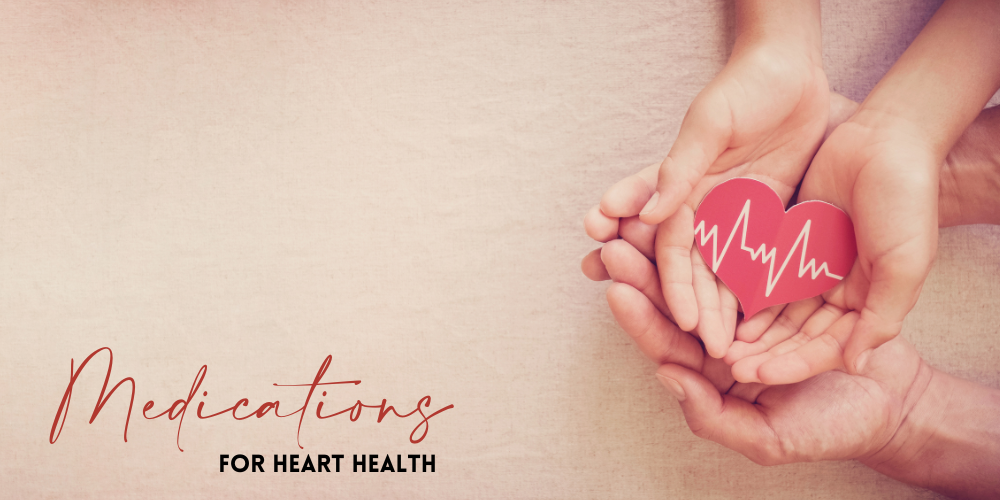Hello and welcome to my last article in this series on heart health — supplements and medications. I see supplements and medications as essentially the same thing: taking something (pill, powder, or injection) to improve your health in some way. By looking at it like this, supplements are just weaker versions of medications. Decisions around what to take must take into account your risk factors, your blood work, your imaging, and what you’re already doing from a lifestyle perspective. Therefore, discussions on supplements and medications must be made between the patient and their doctor. But I want to give you a run-down of what’s available and what you can bring up at your next clinic visit!
When thinking about supplementation for heart health, we need to remember the “why” behind taking them. Taking something to lower cholesterol when your problem is inflammation is not going to be helpful. Secondly, taking a supplement while you continue to smoke is just wasting your money. Getting your lifestyle dialed in first will help improve the benefits from supplementation. Lastly, supplements may not be strong enough for you. If you have a lot of disease on imaging or have already had a heart attack, you’re going to need to focus on prescription medications first.
Supplements for inflammation and endothelial health (* means we carry this at discount in the office or online)

Supplements for Heart Health
- Nitric oxide support* (we like Berkley Life)
- Arterosil* (branded product specifically to help repair the glycocalyx)
- Aged Garlic (Kyolic is the most studied brand)
- Cocoa flavonoids (CocoaVia is the most studied brand)
- Curcumin*
- Omega 3s*
- CoQ10 (important to take if also taking a statin)*
- Stem cell mobilizers* (StemRegen is a well studied brand)
Supplements for cholesterol lowering:
- Psyllium Husk
- Berberine*
- Curcumin*
- Bergamot

Medications for Heart Health
I see a lot of hate on prescription medications for the heart, which really saddens me when coming from a patient with the most to gain from them. With cardiovascular disease being the number one reason for death, we must keep all tools out on the table. I agree that medications are reached for far too often and too early; but we should be careful not to throw the baby out with the bath water.
These medications have shown time and time again to be dramatically helpful in the right patient and have saved a countless number of lives. My hope with this series is that having more information (more labs, having imaging) about your heart will help you make better decisions around treatments.
Statins (Rosuvastatin/Atorvastatin)
- Developed from red yeast rice extract (no point in taking red yeast rice extract over a statin — it’s just a super weak statin that comes with the same side effects)
- Works in multiple ways:
- Reduces cholesterol production and improve cholesterol clearance
- Speeds up the maturation of a plaque from soft and squishy to hard and stable (why you shouldn’t get a calcium score test if taking a statin)
- Improves vascular inflammation
- The most common side effect is muscle cramping (about 7% of patients). Typically, this isn’t subtle. Some muscle cramping may be due to low CoQ10 levels (everyone on a statin should also be on CoQ10). Adjusting the medication to every other day often resolves the issue.
- <1% of people will develop blood sugar problems. This is easy to monitor and is reversible.
Ezetemibe
- Reduces cholesterol absorption from the gut, which also forces the liver to use more cholesterol in the blood to make bile
- Main side effect is diarrhea, unfortunately
- Often used as an add-on to a statin for high risk patients. However, we will choose this before a statin in patients with increased cholesterol absorption on their precision health lab work
Bempedoic Acid
- Also reduces cholesterol absorption and improves cholesterol clearance, like statins
- Newer medication, mostly used in statin-intolerant patients
- May promote gout flares
PCSK9-Inhibitors
- Improve cholesterol clearance by the liver
- Extremely powerful, best for high-risk patients (i.e. previous heart attack, familial hypercholesterolemia)
- Injection every 2 weeks
That’s the overview on supplements and medications! Please don’t go out and buy everything listed but rather use this as a talking point for your next visit with your primary care team.
In closing, I want to reiterate this again: be honest about your current medical situation and keep all options on the table. “Test, Don’t Guess” — get a good assessment of your heart, take stock of how you can improve lifestyle factors, and then make a treatment plan. I do intensive work-ups for my patients all of the time: some are dismayed at the results, seeing their risk staring at them in the face, and upset that I’ve recommended medication first. Others seem high-risk on blood work but have perfectly clear imaging, so we focus heavily on lifestyle changes and supplementation. But at the end of the visit, all are glad that they went through the evaluation.
This is an extremely important topic that requires nuance and an individualized approach. But I believe that death from heart disease does not have to be #1 in America — you have the power to both heal your heart and your health!
All the best,
Dr. Troy Jackson
P.S. If you missed the previous articles in this series you can find them all here:
Mastering Heart Health: Your Complete Guide to Prevention:
- Part 1 (Intro to Heart Health)
- Part 2 (What is Heart Disease?)
- Part 3 (Labs and Imaging)
- Part 4 (Lifestyle Changes)







